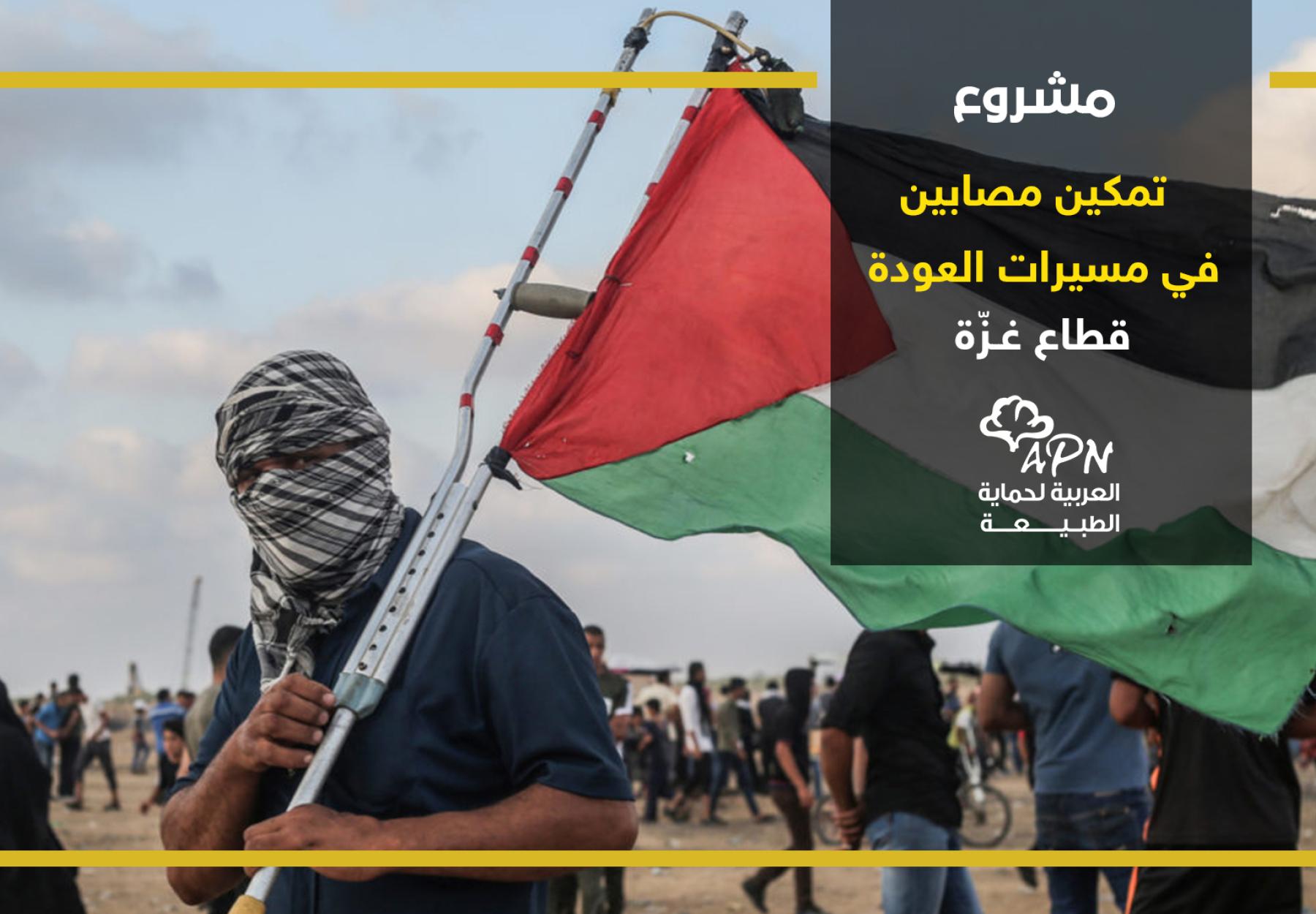
APN has concluded the first phase of the project to empower the injured in the "return marches" in the Gaza Strip, which has succeeded in serving 39 casualties who support 210 people by distributing 700 pigeons and about 2,050 chickens, in addition to planting 5 dunums of fruit trees, as the organization seeks to start implementing the second phase of the project.
It is worth noting that the project, which sought to empower the injured and their families through creative quality projects, was started during Jordan's hosting of a group of Gaza Strip casualties for treatment in the King Hussein Medical Centre in mid-2018. At that time, the APN team visited some of these injured Palestinians to check on their safety. During this visit a conversation took place about the project idea and its feasibility.
Within the program of planting the third million trees in Palestine, the project, which was implemented in partnership with the Palestinian Farmers Association in the Gaza Strip, looked to create sustainable ideas to serve the injured in the long run. This has successfully been been achieved, as the injured developed their own businesses which yielded material benefit and helped them fight against loss of determination, helplessness and brokenness that the occupation seeks to cultivate in the hearts of the Gazan youth.
This first-of-a-kind project also sought to support the resilience of the injured and their families by improving their income and enhancing their food security in the villages of Al-Wusta Governorate, by distributing groups of birds (poultry and pigeons), planting fruit trees and vegetable seedlings, in addition to providing agricultural lands with irrigation networks.
Maryam Al-Jaja, director of the Arab Group for the Protection of Nature, noted that the project serves dozens of families whose injuries have prevented their children from continuing their work, especially since most of the injured in the return marches are youths from the age of 18-39 years, as the occupation deliberately targeted young people with the aim of destroying them.
Al-Jaja indicates that the project does not stop at its economic motives, for there are other important dimensions that the project achieves on the social and psychological levels. The injured youth's drive for productivity and the increase in the amount of green spaces which create a comfortable atmosphere for them during the treatment period have made their recovery more bearable. The project also, for the first time, contributes to providing healthy food and reducing Gazans' dependence on frozen poultry imported from the occupation.
The director of APN stated that the project was accomplished thanks to the supporters who contributed to its financing, pointing out that the door is still open to those who want to contribute to the completion of the second phase.
The Return Marches began in conjunction with the 42nd anniversary of Earth Day (30 March 2018), after setting up tents about seven hundred meters from the border with the Israeli entity, and continued for more than a year.
The occupation army deliberately fired shots at the sides of the participants in the peaceful marches, leaving many wounded, which is considered illegal and constitutes a crime against humanity, according to various human rights centers.